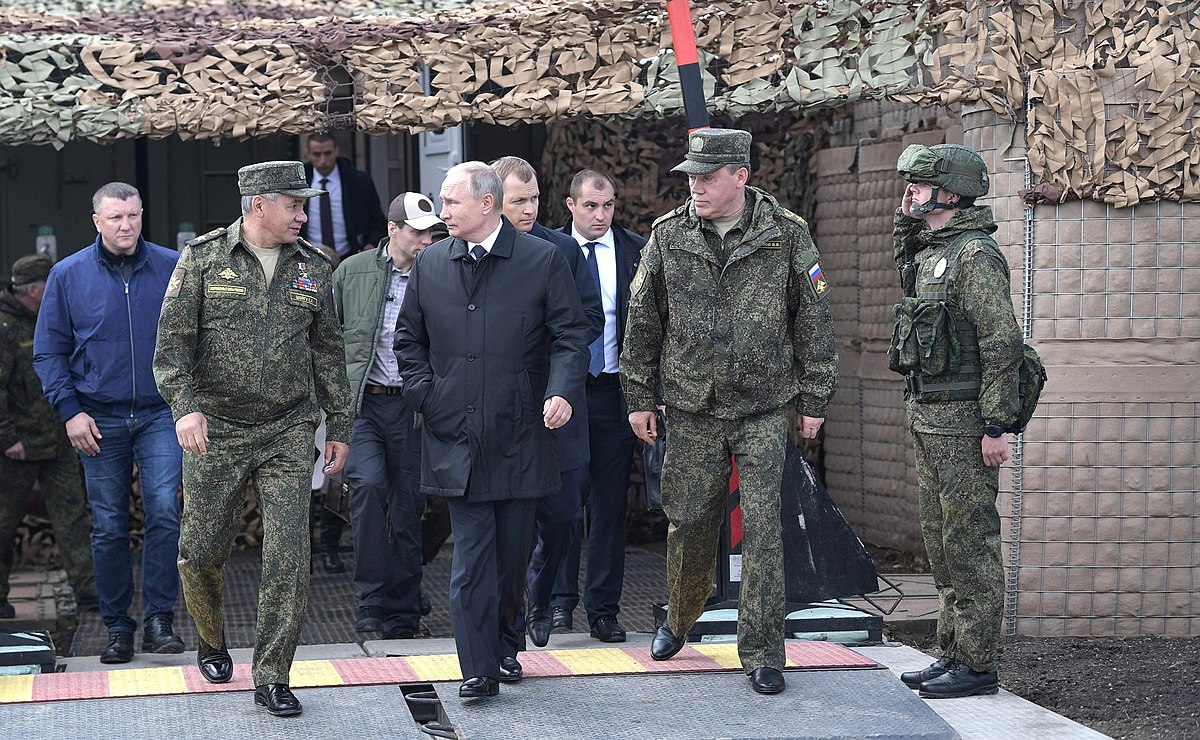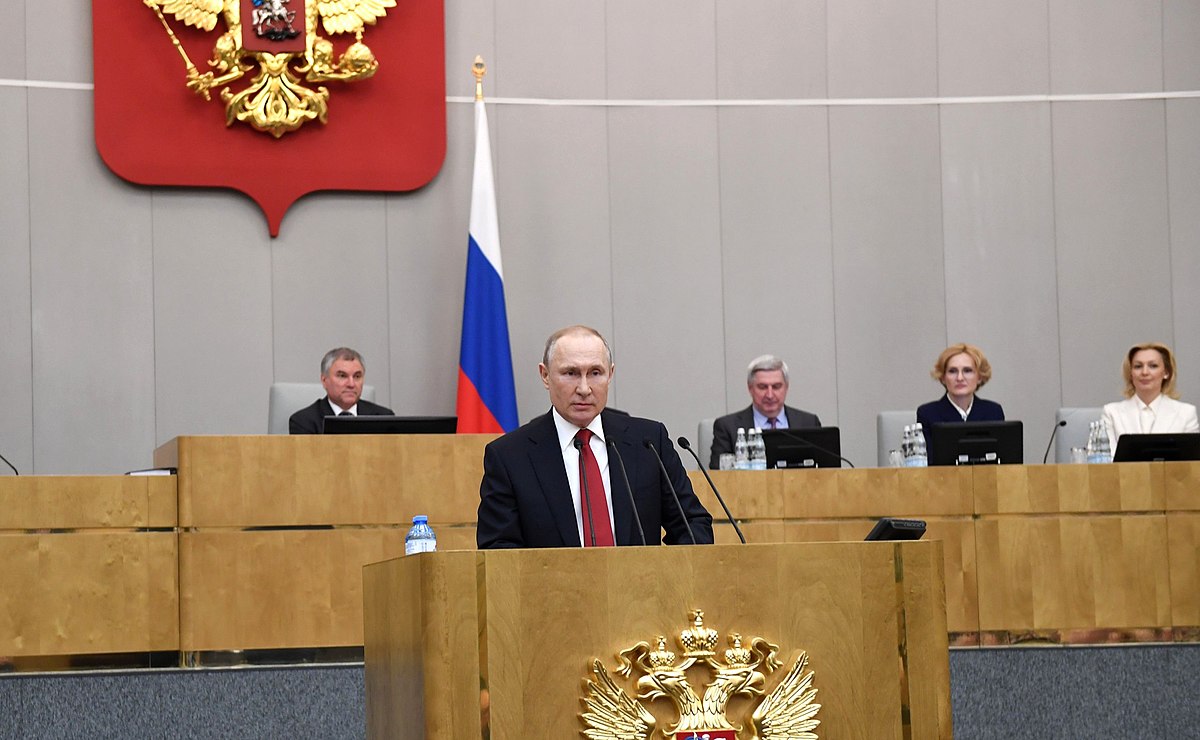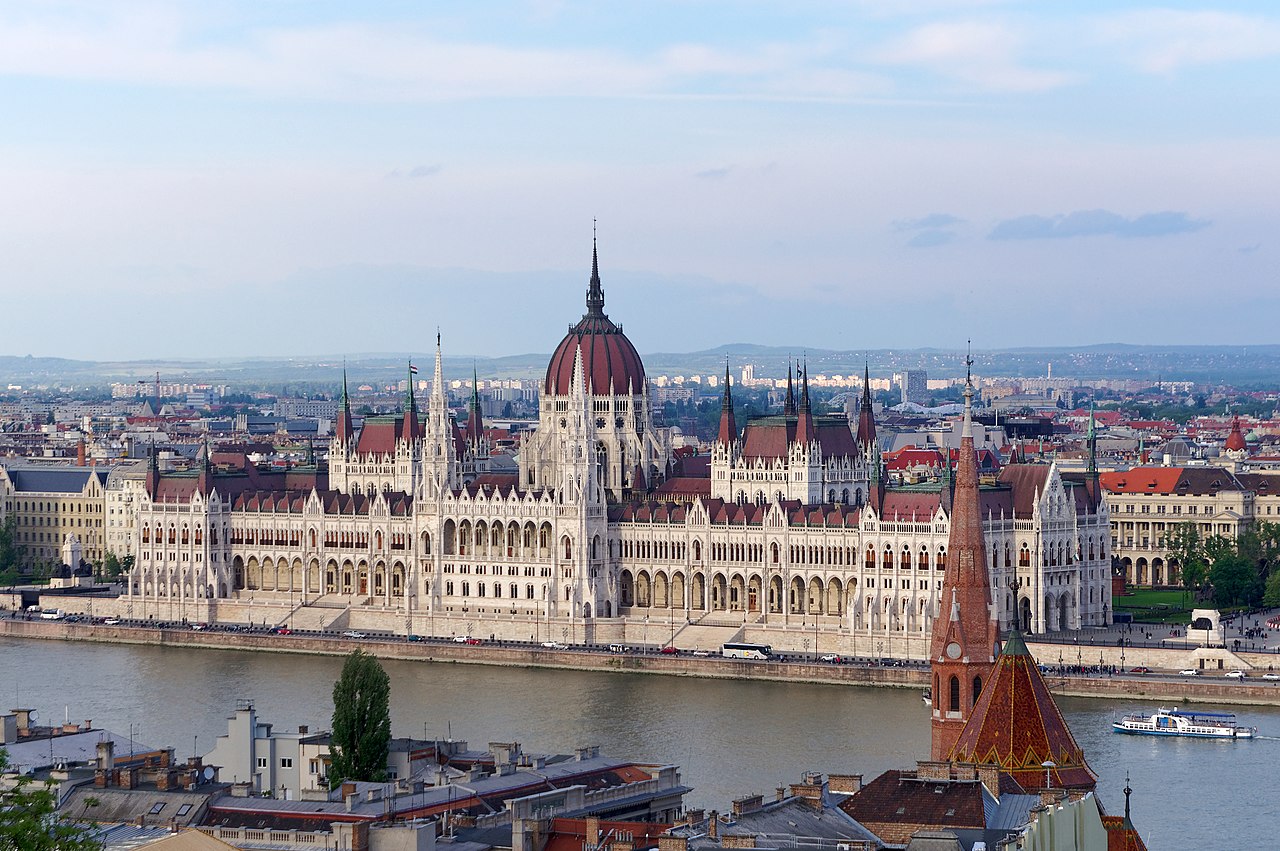Poland and Ukraine at a crossroads. Has Kyiv chosen Berlin and Brussels?

The dispute over grain and related anti-Polish comments by Ukrainian politicians have brought to light how far the interests of Warsaw and Kyiv diverge. It is necessary to speak to the Ukrainians in the language they know best – the language of power. But even that might not result in very much, because Kyiv seems to be deserting Warsaw for Berlin and Brussels.
Maciej Pieczyński
With the approval of the European Commission, Poland, Hungary, Bulgaria, Slovakia and Romania have closed their markets to Ukrainian grain. The ban lasts until September 15, but the governments of all five countries favor extending it. Warsaw has announced that it will continue its restrictions even without the approval of Brussels. And this matter has become the most serious thorn in Polish–Ukrainian relations since February 24, 2022. In the end it was not the dispute about the Volhynia genocide that caused Kyiv to hit back against Warsaw, but the grain question.
The language of power
“Russia has disrupted the grain initiative, destroying the infrastructure of our Black Sea ports and once again provoking a global food crisis. During this critical time, Poland intends to continue blocking the export of Ukrainian grain to the EU,” complained Denys Shmyhal, effectively equating Warsaw’s actions with those of Moscow. Equating Poland, to whose assistance Ukraine owes its independence, with Russia, which is trying to take away that independence. He called the Polish government’s plans an “unfriendly and populist move” that would “severely impact global food security and Ukraine’s economy.” He called for assistance from the European Commission, asking them to end the blockade. He also appealed to Poles not to “fall for populism.” He proposed “cooperation” instead of “slogans and short-term political expediency.” When Marcin Przydacz said that Ukraine ought to show more appreciation for what Poland is doing for it (more or less the same as what British defense secretary Ben Wallace said at the NATO summit in Vilnius, but in more diplomatic terms), a sharp reaction came from Andrii Sybiha, deputy head of the Ukrainian president’s office, who wrote, among other things: “When Ukraine is at war, trying to ‘bargain’ something more from it is tantamount to treachery, which should have no place in our relations (…) There is nothing worse than having your rescuer demand a rescue fee from you even when you are bleeding.” He also noted that all in all it is Ukraine that is rescuing Poland, since it is giving lives to defend Europe against Russia. He called the Polish minister’s statements “manipulation.”
Sybiha’s comments were not the only reaction to Przydacz’s words. In response to the gentle, even timid criticism from the minister in President Andrzej Duda’s office, Polish ambassador Bartosz Cichocki was summoned to the Ukrainian foreign ministry. He is the only chief of a diplomatic mission who refused to evacuate from Kyiv in the first days of the war, demonstrating not only personal courage, but also a friendly attitude toward the host country. In this way, Ukraine showed that instead of calming the conflict, it intends to escalate it. Fortunately, Warsaw finally displayed some assertiveness and summoned the Ukrainian ambassador to its own foreign ministry. And only then did Kyiv start to speak in more conciliatory tones. “We greatly appreciate the historical support of Poland, which together with us has become a real shield of Europe (…) We will not allow any political instants to spoil the relations between the Ukrainian and Polish peoples,” President Volodymyr Zelensky declared. This time it was done without sarcasm (as in the response to Ben Wallace’s criticism) and without charges of populism. This shows that what Ukraine understands best is the language of power. And it respects the side that uses that power. It takes advantage of weakness – whether that of an opponent or that of a partner. There is no sentiment in this. And that should be a lesson to Polish politicians, who too often wait passively for their counterparts in Kyiv to recognize – of their own accord and without coercion – that they ought to make some positive gesture toward Warsaw. Of course, the Ukrainian president’s words should not be grounds for rosy-eyed optimism. They must not cause the Polish government to rest on its laurels and conclude that it has done enough. Zelensky has cooled emotions only for a short time. The conflict will escalate, because the interests of Warsaw and Kyiv in the question of agriculture are simply at odds. Ukraine is a deadly dangerous competitor to Poland in this area, and vice versa.
It should be noted above all that in its criticism of Warsaw, Kyiv is propagating a dishonest claim about an alleged blockade of exports. In fact, Poland is merely blocking the flooding of its own market with Ukrainian grain, while still allowing that grain to be transported across its territory. However, both politicians and pro-government media in Ukraine are repeating the lie that Warsaw, virtually arm in arm with Moscow, is destroying the war-torn country’s economy. During a news show aired as part of a Telemarathon (a joint broadcast by several television stations giving official government information), the anchor spoke of a “blockade of Ukrainian exports by Poland.” On the “1+1” program, agriculture and food minister Mykola Solskyi suggested that Warsaw’s actions were provoking Russia to bomb the port in Odesa (and thus to destroy the Ukrainian economy). He also argued that Kyiv favored “free trade” (a clever way of justifying what is really a fight for its own interests). When during the Vilnius NATO summit Zelensky’s ingratitude was called out by representatives of the United Kingdom (Ben Wallace) and the United States (Jake Sullivan), Ukraine’s president received an avalanche of criticism from the opposition at home, who were alarmed that powerful allies would take offense. When Przydacz gave voice to similar accusations, there was no such reaction. For Kyiv, clearly, Washington and London are much more important than Warsaw. Moreover, they are not competitors to Ukrainian agriculture.
A voice of reason
It is also worth taking note of one of the few pro-Polish voices in this matter that has been heard in Ukraine. Political scientist Vitaliy Bala has noted that some of the Ukrainian grain being transported via Poland is smuggled onto the Polish market, and it is no surprise that Warsaw will not tolerate this. “It’s time to stop stealing, not only in Ukraine, but also beyond its borders (…) For Polish farmers, the appearance of smuggled Ukrainian grain is no sign of friendship or partnership,” Bala said. Another voice of reason in the matter appeared on the website of the Unian agency. Alona Kyrychenko and Nadiya Burbela argue to their readers that the five EU countries wish to restrict Ukrainian exports not out of spite toward Ukraine, but in defense of their own markets. They note that Kyiv must prepare for various similar restrictions if it is considering joining the EU, whose members often have to make compromises and give way to others. Paradoxically, it is those countries that are Ukraine’s strongest supporters today which will become its most dangerous economic rivals after the war.

Ukraine is smearing its “ally” and using disinformation to serve its own economic interests. Its aim is to take over – at the cost of Poland’s farming sector – the Polish and generally the European market. Added to that, it is applying moral blackmail. All of Kyiv’s statements propagate, more or less explicitly, the well-known narrative that Ukraine is defending the whole of Europe – or even the whole world – against Russian invasion, and lately also against a food crisis. Ukraine tries to persuade its Western partners that they have to give way in every matter for their own good. In reality it is defending only its own independence, territorial integrity and interests, including its economic interests. Of course, if Ukraine were to be swallowed up by Russia, that would pose a huge threat to Poland. However, such a prospect should be a cause for concern more for the decision-makers in Kyiv than for those in Warsaw. Poland has security guarantees as a member of NATO. For the moment, Ukraine can only dream of membership of that organization. It is at the mercy of its Western allies. And it is therefore logical that Ukraine needs Poland more than Poland needs Ukraine. It would be advisable to take better advantage of that fact.
Playing for a new opening?
In Denys Shmyhal’s statement, which gave the signal for further attacks, he concentrated on criticizing Poland, which is strongly pro-Ukrainian, even though the “blockade” is also favored by four other EU countries, including Hungary, which is accused of taking a pro-Russian stance. First, it is clear that sooner or later, when they move into European markets, Ukrainian farmers will have to deal with their Polish competitors, and they have obviously started already. Secondly, Warsaw so often underlines its selfless attitude in supporting its neighbor, and has so often displayed naivety and a lack of assertiveness, that it must have seemed an easy opponent. Thirdly, Poland has provided Ukraine with so much assistance that the resources available for continued support are effectively running out. So even if Poland takes offense, Kyiv has little to lose (at least, that is what the Ukrainians may believe).
Any Polish attempts to discipline Ukraine may be thwarted by objections from more powerful players in the West. And here we come to the crux of the matter. There are many indications that Zelensky has decided to turn away from Warsaw and to put his money on Berlin, Paris and Brussels. That is, to follow the path trodden by his predecessor, Petro Poroshenko. Some commentators in Poland claim that the anti-Polish rhetoric is exclusively the domain of Shmyhal, who wants to distance himself from Zelensky’s “pro-Polish” narrative for internal political purposes. However, both Ukraine’s prime minister and its president are saying the same thing on the grain question. Both of them are asking the European Commission for help in their dispute with Poland. Zelensky has said publicly that Ursula von der Leyen herself promised him that Warsaw would lift the “blockade.” Moreover, he said this during Andrzej Duda’s visit to Kyiv. German agriculture minister Cem Özdemir has called the Polish import ban “intolerable.” He has given an assurance that Germany, France, and “several other countries” were speaking with one voice on this matter. It is probable, then, that Kyiv and some of the most powerful players will form a coalition targeted against Poland. It is clear that they have a common interest. Ukraine wants to flood the Polish market with its grain and overcome its competitor, while the West would like to see PiS removed from power, which might become more likely in case of a defeat over the grain question. Or perhaps Zelensky has become tired of his friendship with Andrzej Duda, and as Zbigniew Parafianowicz has suggested in Dziennik Gazety Prawnej, has decided to play for a new political opening in Poland.
This article was published in August 2023 in “Do Rzeczy” magazine.




